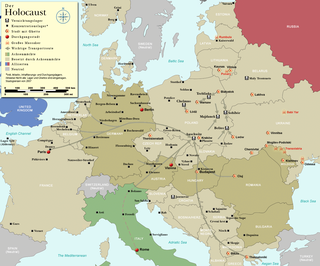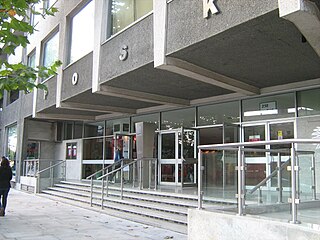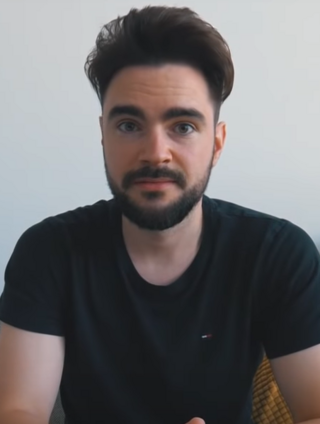
The Trial of the Sixteen was a staged trial of 16 leaders of the Polish Underground State held by the Soviet authorities in Moscow in 1945. All captives were kidnapped by the NKVD secret service and falsely accused of various forms of 'illegal activity' against the Red Army.

Polonophobia, also referred to as anti-Polonism or anti-Polish sentiment are terms for negative attitudes, prejudices, and actions against Poles as an ethnic group, Poland as their country, and their culture. These include ethnic prejudice against Poles and persons of Polish descent, other forms of discrimination, and mistreatment of Poles and the Polish diaspora.

The terms "Polish death camp" and "Polish concentration camp" have been controversial as applied to the concentration camps and extermination camps established by Nazi Germany in German-occupied Poland. The terms have been criticized as misnomers. The terms have occasionally been used by politicians and news media in reference to the camps' geographic location in German-occupied Poland. However, Polish officials and organizations have objected to the terms as misleading, since they can be misconstrued as meaning "death camps set up by Poles" or "run by Poland". Some Polish politicians have portrayed inadvertent uses of the expression by foreigners as a deliberate disinformation campaign.

No. 301 Polish Bomber Squadron "Land of Pomerania" was a Polish Air Force squadron formed in Great Britain as part of an agreement between the Polish government-in-exile and the United Kingdom in 1940. It was one of 15 squadrons of the Polish Air Force in exile that served alongside the Royal Air Force in World War II. It was a bomber unit from 1940 to 1943, and special duties squadron from 1944 until it was disbanded in 1946. It operated from RAF airfields in the United Kingdom and Italy.

The Scouting and Guiding movement in Poland consists of about twelve independent organizations with an overall membership of about 160,000 Scouts and Guides. The largest organization by membership is Polish Scouting and Guiding Association with about 140,000 members.

British Poles, alternatively known as Polish British people or Polish Britons, are ethnic Poles who are citizens of the United Kingdom. The term includes people born in the UK who are of Polish descent and Polish-born people who reside in the UK. There are approximately 682,000 people born in Poland residing in the UK. Since the late 20th century, they have become one of the largest ethnic minorities in the country alongside Irish, Indians, Pakistanis, Bangladeshis, Germans, and Chinese. The Polish language is the second-most spoken language in England and the third-most spoken in the UK after English and Welsh. About 1% of the UK population speaks Polish. The Polish population in the UK has increased more than tenfold since 2001.

Związek Ludowo-Narodowy was a Polish political party aligned with the National Democracy political movement during the Second Polish Republic, gathering together right-wing politicians with conservative and nationalist opinions.

Jadwiga Piłsudska-Jaraczewska was a Polish pilot who served in the Air Transport Auxiliary during the Second World War. She was one of two daughters of Józef Piłsudski.
Literary Association of the Friends of Poland is a British organisation of solidarity with Poles, founded February 25, 1832 in United Kingdom by the Scottish poet Thomas Campbell and German lawyer Adolphus Bach. Although the creation of the LAFP was the result of deep pro-Polish sympathies of Campbell and the whole contemporary British public opinion, Prince Adam Jerzy Czartoryski did attend a dinner for the association, in Edinburgh 1835 along with Count Zamoyski.

The Polish Social and Cultural Centre is a Polish cultural centre in west London, England. It was founded in 1967 and funded by public subscription, on the initiative of Polish engineer Roman Wajda, at 238–246 King Street, Hammersmith.
National Committee of Americans of Polish Extraction, also known as the National Committee of Americans of Polish Descent or its Polish abbreviation KNAPP, was a Polish-American organization active in the years 1942-1959 in the United States.
In the contemporary English language, the noun Polack is a derogatory term, mainly North American, reference to a person of Polish origin. It is an anglicisation of the Polish masculine noun Polak, which denotes a person of Polish ethnicity and typically male gender. However, the English loanword is considered an ethnic slur.
Michał Mirosław Karol Maciejowski DFM Lt. pilot. F / L. P-1912 was a Polish fighter ace of the Polish Air Force in World War II.
Mateusz Bronisław Grabowski, known as Grabowski or M.B. Grabowski, was a Polish-British pharmacist, art collector, and philanthropist known for owning the Grabowski Gallery in Chelsea, London. His M.B. Grabowski Foundation has endowed Polish Migration and Polish Cultural History studies at University College London, the University of Stirling, the University of Cambridge, and Trinity College, Oxford. He donated his pharmaceutical and art collections to several museums in Poland.
The Grabowski Gallery was an avant-garde art gallery opened in 1959 in London's Chelsea by Mateusz Grabowski, anticipating the Swinging Sixties. It hosted some of the earliest shows of the rising pop art movement and was the first venue in London to bring op art to the public. It launched the careers of some of Britain's and the British Commonwealth's leading exponents of two- and three-dimensional art and fostered émigré artists from Europe, the Caribbean and the Commonwealth. By the time it closed its doors in 1975 it had mounted around two hundred shows. When the gallery closed Mateusz Grabowski donated his collection of works from the gallery to the Museum of Art in Łódź and the National Museum in Warsaw, Poland.
Stanisław Frenkiel RWA was a Polish expressionist painter, graphic artist, art historian, teacher, academic and writer.
Jan Kowalski was an aircraft pilot who served in the Polish Air Force and Royal Air Force with the ranks of captain and flight lieutenant respectively. He had fought in the World War II, including the Battle of Britain.
Wiktor Andrzej Moszczyński is a British-Polish journalist, political activist, and author. He is the recipient of Polish Golden Order of Merit (1992), Bene Merito honorary badge (2010), and Commander's Cross of the Order of Merit (2014). He was the chairman of Polish Solidarity Campaign in 1982–83. He served as a councillor in Ealing Borough Council from 1986 to 1990. and previously in 1979–80 in Ipswich Borough Council. Married in 1972 to Albina Drabik; one son, Sandro Marcus Moszczynski, born in 1990.

Stuart Alexander Kluz-Burton – British YouTuber based in Poland, creating content mostly in the Polish language under the name Stuu, formerly Polski Pingwin.










